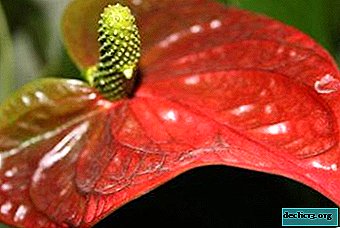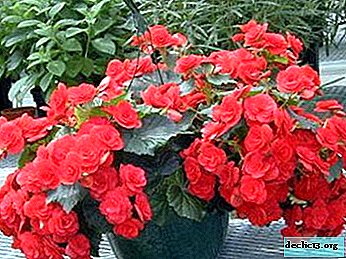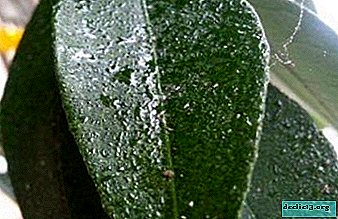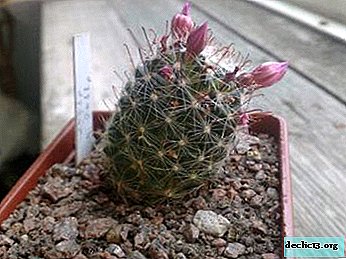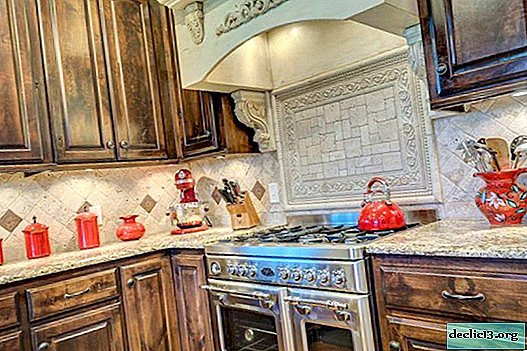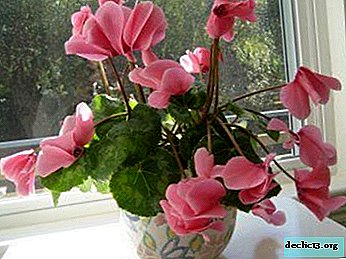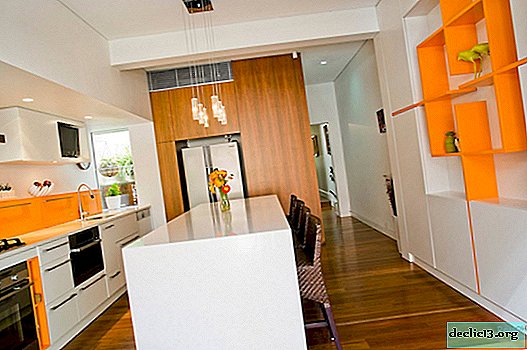All about whether begonia can be kept at home, what it is for, what it is like as a symbol.
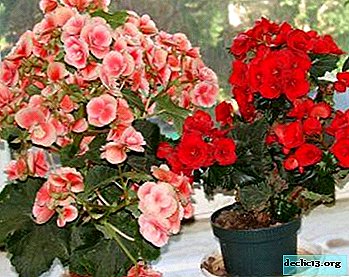
Most people are more or less superstitious, sometimes out of habit, or just in case. And long-standing legends that grow and layer over time like a snowball can dictate to a person how to live.
Here is a beautiful flower, but keeping it in a house is a bad omen. So they refuse the plants they like. Or vice versa - signs give the plant the properties of a magic wand.
So let's look at the myths that haunt begonia, find out where they came from, and try to understand whether it is possible to keep begonia in your home.
Short description and types
Begonia is a whole genus of plants of the begonia family, which includes more than 1000 species. The place of distribution of begonias in nature is South America, Africa, India. This type of plant was discovered in the late 17th century by the French botanist Charles Plume in the West Indies. He gave the plant a name in honor of his companion Michel Begon.
A large number of species of this plant for use in floriculture can be divided into two main groups:
- Deciduous and decorative specimens have beautiful irregularly shaped leaves of the most varied colors.
- Beautifully flowering varieties densely dotted during flowering with complex roses, or simple flowers of yellow, white, pink and red.
It is impossible to describe this flower, because begonias are so diverse that each species requires an individual description.
Benefit and harm
Like many plants, begonia has various properties for the human body, including benefits:
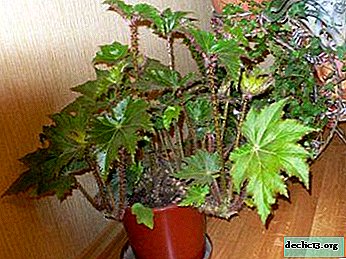 Juice from leaves and stems soothes nerves, normalizes sleep, and relieves stress.
Juice from leaves and stems soothes nerves, normalizes sleep, and relieves stress.- It is part of effective sleeping pills, as an auxiliary substance.
- Plant extract is a part of drugs intended for the treatment of alcoholism and drug addiction.
- Helps reduce blood pressure, and has a beneficial effect on blood circulation in general.
- Begonia releases phytoncides into the air, which successfully fight even with streptococci and staphylococci.
- Cleans the air not only from bacteria, but also from dust and toxins.
- Pleases the eye with its appearance.
Now you know what begonia is for.
But there are warnings associated with this plant:
- Many species of begonias are poisonous to one degree or another, so it is better to make preparations with extracts of this flower, reliably making sure that a safe copy is selected. Dosages must be strictly observed to avoid poisoning.
- You should be careful when there are small children and animals in the house, because an eaten leaf of begonia can lead to a burn of the mucous membrane of the mouth and larynx.
- Preparations with this plant are prohibited for use by pregnant, lactating women and children.
- With any manipulations with the plant, you can not rub your face, eyes, otherwise you can get a burn. It is better to carry out pruning and transplanting with gloves.
Read more about the beneficial and harmful properties of begonia for home and humans in a separate article.
What is grown for?
Of course, the main function of begonia is to decorate the interior of your house (you will learn about growing begonia at home here). These plants are actually very beautiful, and some are even original. Begonias are used in flower arrangements and simply kept on a windowsill. Some flowering begonias look like a bouquet of small roses. Others hit the exotic-looking leaves.
On a note. People familiar with the beneficial properties of this plant use it as an air purifier, for example, in a room where they smoke. It, like a vacuum cleaner, draws in all the toxins.However, there are those who start begonia to attract good luck, love, prosperity and positive energy. All this is promised by national signs and beliefs.
The meaning of this flower
 From the point of view of esoterics, this plant has positive energy. and can help in almost all areas of life. We will write below what is the meaning of a flower in a person’s life, according to beliefs. In general, begonia is a symbol of what phenomena in people's lives?
From the point of view of esoterics, this plant has positive energy. and can help in almost all areas of life. We will write below what is the meaning of a flower in a person’s life, according to beliefs. In general, begonia is a symbol of what phenomena in people's lives?
- If finances do not go well, begonia will attract a cash flow to the house.
- You are alone? Put a begonia with red flowers in the bedroom, and happiness will not take long.
- Do you have a soulmate? Scarlet begonia near your bed will help maintain love and passion in a relationship.
- Pink flowers in the kitchen will save you from household disputes.
- White begonias in the living room will establish peace among all households.
- No happiness? A caring plant will give happiness to all the inhabitants of the house.
- When begonia withers, wait for trouble.
- When it blooms profusely, everything will be fine.
- Blossomed not on time - there will be a replenishment in the family.
- A man with negative energy came into the house - a flower will take it all without a trace.
- Being close to begonia, you are charged with positive energy.
- Buying begonia on the market is a bad omen.
- The flower helps to heal the heart, lungs, liver and stomach.
Now you know what begonia growing at home means - it can be both good and bad.
Should I grow in an apartment?
Can I keep at home? In the house you can keep any flowers that you and your family like. Do not take responsibility for your successes and failures on this small flower. You can believe that your beautiful begonia brings you good luck, and even consider her a talisman. However, you should not expect that while the hostess will be lying on the sofa, the begonia will drag a sack of money and a prince in love to her doorstep.
Important! We are responsible for our pets. For their condition and life. And begonia will definitely thank you with clean air and beautiful flowers.Frankly, I also suffer from superstition, and I believe that a person who takes responsibility for his life only on himself is a sure sign that the plants in his house will be well-groomed and healthy.
Start begonias, if you like them, take care of them, achieve success in life and believe in your strength, and not signs invented by someone!
Care
In order for the plant to bring us good luck, we will provide it with proper care:
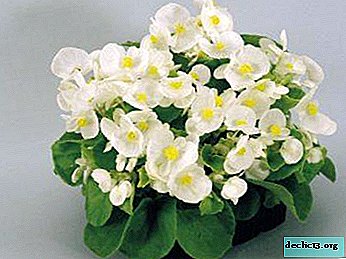 The optimum temperature for the flower is 20-22 degrees, in winter 15-17 degrees.
The optimum temperature for the flower is 20-22 degrees, in winter 15-17 degrees.- Begonia loves good lighting, but the scorching summer sun can harm her, so it's better to put her next to the window for this time, and not on the windowsill.
- The plant likes moist air, but you should not spray the leaves. This may result in damage. It is better to put a pan with water under the pot.
- Abundant watering is required, but pouring is also not worth it. A water tray here will be the best option. In winter, watering is needed more moderate. You will learn how and what to water the plant in this article.
- Every year you need to transplant a flower. You can take a special soil for begonias, or mix peat, leaf humus, sand and turf in a ratio of 1: 1: 1: 2.
- All abundantly flowering plants need fertilizing, so from the onset of spring to autumn, you need to make mineral fertilizers. This should be done every 10-14 days. Foliage and decorative specimens also need top dressing, but not so often, once a month is enough.
- Winter begonias require peace. Watering is reduced, all dressings are stopped and the flower is placed in a cooler place with moderate lighting. Such measures will be the key to good flowering next year. Read more about winter care here.
Conclusion
We spit over our shoulders, knock on a tree, drive black cats off the road, cross our fingers and wait for the man to come when the knife falls. Sometimes without even thinking why we are doing this.
Plants really have a beneficial effect on the psychological state of a person - it is proved by science. Everything else is the result of our actions. And it’s great if all these signs are true, but “trust in God, but don’t blunder yourself.”

 Juice from leaves and stems soothes nerves, normalizes sleep, and relieves stress.
Juice from leaves and stems soothes nerves, normalizes sleep, and relieves stress. The optimum temperature for the flower is 20-22 degrees, in winter 15-17 degrees.
The optimum temperature for the flower is 20-22 degrees, in winter 15-17 degrees.